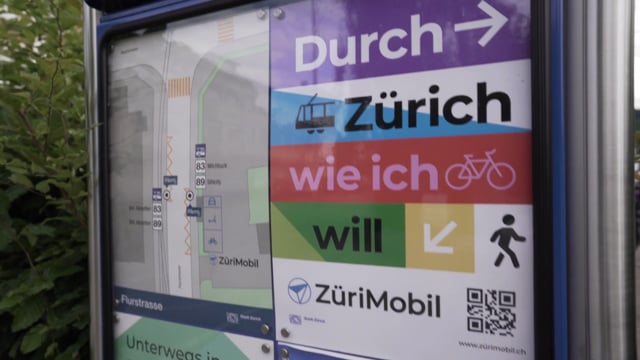CAS New Business Models in Future Transport

The CAS New Business Models focuses on the development and implementation of new models for resource-efficient mobility services and products. In the CAS, students examine the boundary conditions of new business models as well as their development and implementation. The students develop their own business model, which is relevant for their professional efforts.
Graduates are able to...
- understand mobility behaviour and demand.
- assess the framework of new business models for future mobility.
- develop new business models and position them in the market and within their own company.
- identify and evaluate promising business models.
- applying tools of agile product development and user-centred product innovation

"The CAS New Business Models is a holistic continuing education programme with practical relevance. The programme gets to the heart of existing as well as new aspects of mobility in a methodological, academic and practical manner. In addition to the theoretical basics, the excellent inputs from the speakers were inspiring and they were able to convey new trends and food for thought. The networking and exchange within the class was particularly valuable. All in all, a highly recommendable programme."
Manuela Hofstetter-Schären, Angebotsplanerin Zentralschweiz, SBB
Optionally, the CAS in Transport Engineering can be taken at the IVT for the Master's program, instead of the CAS New Business Models.
Modules
Framework conditions and mobility behaviour (3.5 ECTS-KP)
Module responsibility: Dr Peter de Haan (EBP)
The module covers the demand side for new business models for future mobility. Why and how do people want to be mobile? What economic, social and legal conditions exist and how will these develop in the future? The participants know the boundary conditions and instruments and can identify and specifically use the relevant ones for a real-world problem.
New business models for sustainable mobility (3 ECTS-KP)
Module responsibility: Professor Adrian Müller (ZHAW)
Mobility systems and markets are undergoing fundamental change. New business potentials and innovative business models are emerging. This module discusses the central drivers, inhibitors and challenges of business model innovation and introduces the methods of business model development. Participants will be able to prototype, evaluate, refine and convincingly present their own sustainable business cases.
Implementation of new strategies and business models for sustainable mobility (3 ECTS-KP)
Module responsibility: Dr Christian Marxt (ETH)
The implementation of strategies and new business models must take place both within companies and in the market. This module teaches the basics and methods for the successful implementation of new, sustainable strategies and business models. The participants assess their own role and scope of action. Various actors from the freight and passenger transport sectors share their experiences, which are critically reflected upon. Participants learn how to shape the implementation of strategies and business models.
Agile and user-centred innovation (2 ECTS-KP)
Module responsibility: Dr Christian Marxt (ETH)
It is essential for companies to realise products quickly, cost-effectively and in a customer-oriented way. Approaches to agile and user-centred product development such as Scrum, Kanban and Design Thinking are becoming increasingly important. Compared to traditional methods of product development, agile approaches promise higher quality and customer satisfaction with reduced effort.
CAS thesis New Business Models (3 ECTS-KP)
Module responsibility: Dr Christian Marxt (ETH)
Participants work on a new business model of their own choice from the field of sustainable mobility. They integrate boundary conditions (market, demand, behaviour and legal-political situation), business case and implementation of the business model.
Course language & materials: English/German